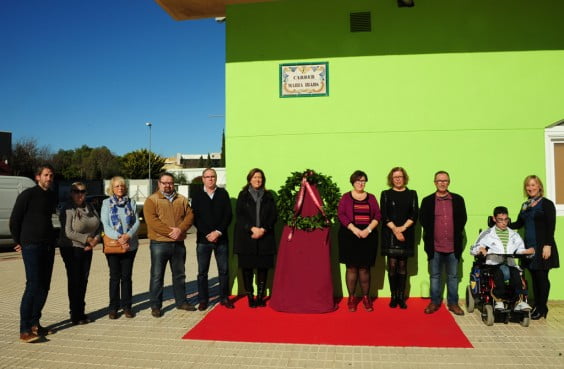Last Friday 9 of January Dénia honored the writer María Ibars on the fiftieth anniversary of her death. The simple act took place in the street that bears the name of the writer, in the vicinity of the Plaza Jaume I, and was chaired by the mayor, Ana Kringe.
There we could see the councilor of education and culture, Pepa Sivera; many councilors of the municipal corporation and representatives of IES María Ibars and the College of Education Special Raquel Payà.
In addition to remembering the life of the writer, in the event some of his poems were read. They participated in this reading the headmistress Raquel Payà, Maite Martí; the student Cristian Ferrer; Pepa Ribes, driving the appointment of the institute as María Ibars; and pepetoni Server, director of the center.
María Ibars
Councilwoman culture was in charge of talking about the figure of the teacher and writer María Ibars, born in Valencia in 1892 and living in Dénia since her family moved when she had few months.
María Ibars spent his childhood and adolescence in the neighborhoods of Saladar and Baix la Mar, and in summer at the family home campus, Penyamar, which also gave its name to one of his books best-known poems, Poemes de Penyamar: in the shadow of Montgó (1949)
branded as "A unique woman for the years she had to live", María Ibars won the title of teacher in the School of Education of Valencia in 1913, and soon began working as such in the Font de la Figuera, where she met her husband. In 1917 were married in the church of San Antonio or Convent del Mar, As she called it, and a few years their children were born, Darius and Raquel Payà, renowned pedagogue that names the school's special education Denia.
María Ibars and his family moved to Valencia, where their children started college, and was thereafter when integrated into the intellectual world of valencianismo.
From the years 40, María Ibars began his literary production, becoming one of the few Valencian writers of the time with a work in which "You can see a feminine look that gives prominence to women and a certain denunciation of the conditions of inequality in a rural and patriarchal society."













